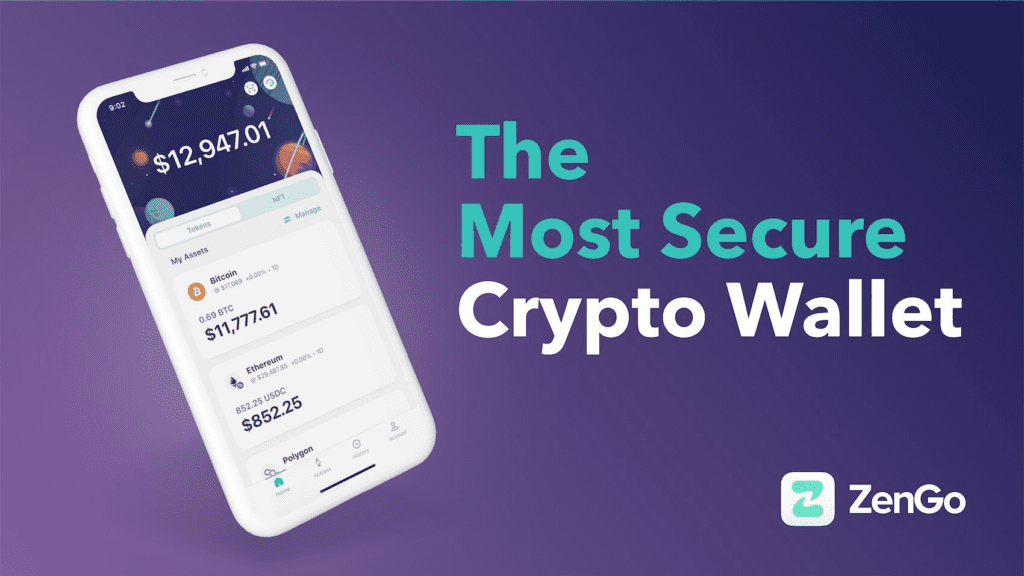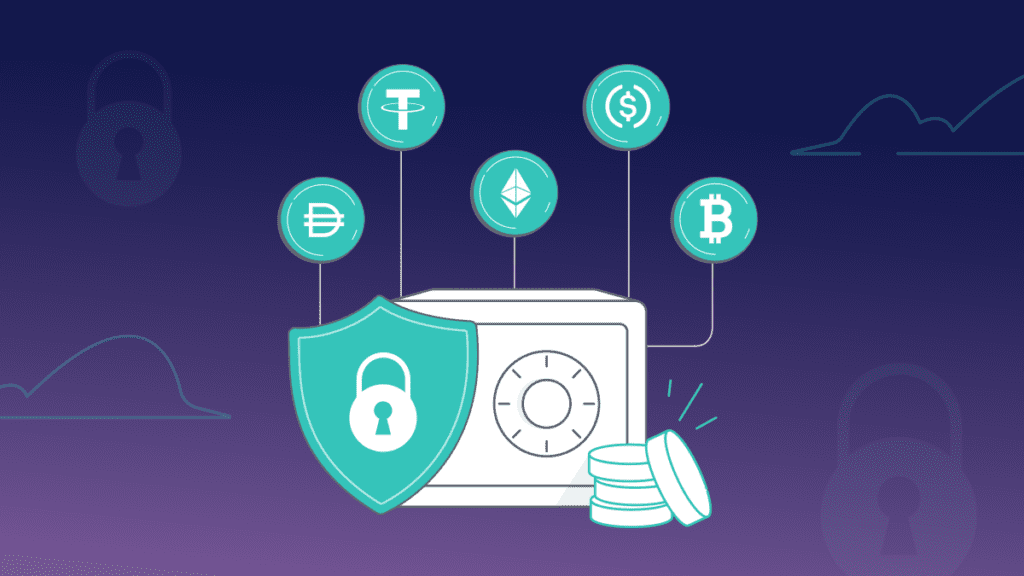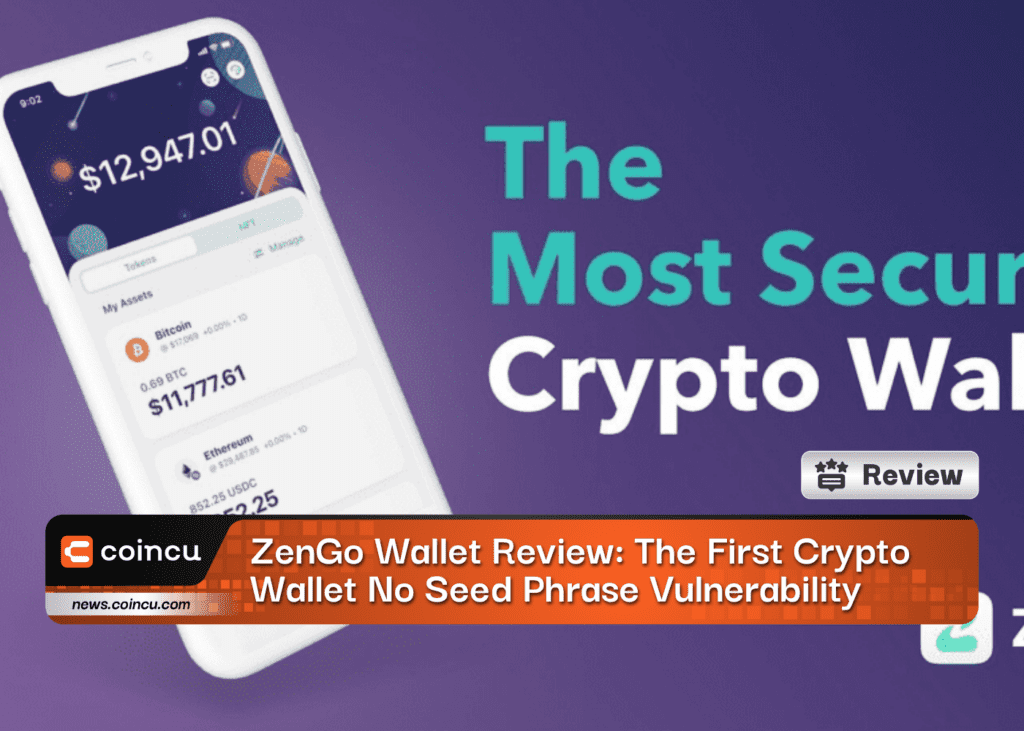ZenGo is the self-managed wallet of the future because it never gets hacked and doesn’t have to worry about seed phrases. Let’s find out more details with this ZenGo Wallet review.
About ZenGo Wallet

ZenGo is the first unattended crypto wallet that does not generate keys. It is developed based on advanced cryptography using threshold signatures. Traditional Private Keys are replaced with two independently generated mathematical secret shares stored on your mobile device and ZenGo servers.
Another level of security is the 3D biometric scanning used to back up the wallet and link to the user’s iCloud or Google Drive. This means there is no point in failure and no risk of losing your funds irretrievably in the event of a hack or loss of your wallet. It’s an exciting new means of getting rid of seed phrases, but we’ll take a look at some downsides to this level of convenience.
In addition, you can buy, trade, send and receive cryptocurrencies directly from the ZenGo wallet. ZenGo is a mobile wallet available on Android and iOS devices, and it can be downloaded on the official website, from Google Play and the App Store.
How is ZenGo Wallet different from other wallets?
Better security without seed phrases or private key risks

Theoretically, the “be your own bank” model promises, but for most people, bank-grade security is harder to implement than one might think, which leads to human error and lost money. On the other hand, leaving your funds in a custodial wallet is also risky. Hackers steal an estimated $2.7 million from custodial wallets daily.
Advanced MPC cryptography eliminated the only point of failure that exists with custodial wallets that store private keys on their servers and self-managed wallets that store private keys on phones or personal computers.
With ZenGo, private keys are kept. Although it is straightforward to set up and use, it is rated as a cryptocurrency wallet, which makes it very difficult for hackers to take over your crypto account or cause you to lose your wallet.
Restoring your wallet becomes very easy if you lose or change your phone, and even if ZenGo stops working one day.
Better transaction protection
ZenGo offers unique protection when you use web3 applications like Defi’s NFT with Clearsign, a special Firewall that alerts you to risky transactions and avoids falling prey to phishing attacks, and scam.
Ease of use and outstanding customer experience
Using cryptocurrency wallets today is often difficult because they are quite complicated and confusing, but for Zengo, the biggest problem is storing keyphrases, it has been solved. Besides, it has an easy-to-understand interface and simple operations that will help users become familiar with how the e-wallet works.
Features of ZenGo Wallet
Cryptocurrency storage
ZenGo Wallet will allow you to store up to about 70 different crypto assets. Your cryptocurrency will always be safely stored without worrying about loss.
Trade crypto directly from your wallet
Another feature that makes ZenGo Wallet an excellent mobile wallet choice is the ability to buy and sell cryptocurrencies supported directly in the app, providing user convenience and a way for ZenGo to generate revenue for free for their wallet.
ZenGo Wallet allows you to trade cryptocurrencies from within the wallet interface. On top of that, this leads to a big win for convenience – you don’t need to visit an exchange, buy your cryptocurrencies there and then deposit them in your wallet.
Earn profit
Aside from the security features, ZenGo offers its users some other unique benefits. Zengo Wallet’s profit-earning product allows you to earn high APY on assets you store in your wallet.
You can store BTC or shortly it will include USDC, USDT, DAI, and NEXO.
It would help if you stored your BTC in the ZenGo wallet, then spend that money in a special savings section of the platform. With a $50,000 limit, you can earn an APY of 4-5% for any amount of Bitcoin you store. If the value of stored BTC exceeds the said amount, you will receive an APY of 1%.
Crypto wallets that allow you to earn interest on your assets are not standard, and this is really a helpful feature offered by ZenGo. In addition to storing your cryptocurrencies in a safe environment, you will also be able to earn interest on them.
Connect securely to Web3
ZenGo Wallet also offers full NFT functionality to store and view their Web3 content through the wallet.
The Web3-ready ZenGo wallet app lets you easily interact with NFT-enabled decentralized applications (Dapps) and use your NFTs and crypto in those Daaps through the built-in WalletConnect feature. With this feature, you can scan the QR codes displayed by Daaps, like OpenSea, to connect your wallet to be able to buy NFTs and then store them in your ZenGo NFT wallet.
WalletConnect is an extra security step – an open-source protocol for secure communication between Crypto Wallets and Dapps (decentralized Web3 applications). It confirms your identity and gets you safely where you want to go in the Web3 universe – all from your trusted crypto wallet.
You need to do 3 simple steps below.
Security of ZenGo Wallet
No Seed Phrase Vulnerability
MPC (Multi-Party Computing) cryptography has been used at the institutional level for many years to store billions of dollars by companies like Fireblocks and Coinbase.
ZenGo Wallet is the first crypto wallet to leverage MPC’s advanced security features for consumer wallets, providing a self-managed wallet with no seed phrase vulnerabilities. This is one level more secure than seed phrase wallets: Even hardware wallets.
MPC wallets offer a higher level of security than native phrase-based wallets: Leveraging the MPC architecture allows ZenGo users to self-manage without needing a native phrase.
Instead of the traditional seed phrase, ZenGo is powered by two independently created “secret shares.” A share (Your Personal Share) is created and stored on your mobile device, and the second share (Your Remote Share) is created and secured on ZenGo’s servers.
Whenever you initiate a transaction from your wallet, the two shared secrets securely compute to create a signed transaction that interfaces with the blockchain.
Easy wallet recovery with 3FA
ZenGo’s security model eliminates the single point of failure found in traditional wallets (a vulnerable root phrase). When you create a ZenGo wallet for the first time, two secret shares are initialized: Personal Share, stored on your mobile device, and Remote Share, stored on ZenGo’s servers. An encrypted copy of your share is also stored on ZenGo servers, and the decryption key is stored in your cloud account.
ZenGo’s 3FA recovery system allows you to recover your shares and access your wallet if you transfer your account to a new device. The 3FA process includes the following:
- What you control
- You are something;
- Something you store.
It only takes a few minutes to get your wallet back. Confirm your email address, and authenticate with 3D FaceLock, and the encrypted Private Share will then be decrypted on your device – restoring full access to your account.
Web3 Firewall
ZenGo’s Web3 Firewall, ClearSign, provides information, and alerts and protects ZenGo users against the most sensitive and vulnerable Web3 attacks. Combined with ZenGo’s MPC security architecture that eliminates private key vulnerabilities, ZenGo continues to innovate to be the most secure crypto wallet in Web3.
Web3 is like a highway without traffic lights. Trading with Defi and NFT feels like being blindsided on a path fraught with potential accidents, and wallets make no effort to notify you properly and protect you against those risks. That is no longer the case.
ZenGo’s ClearSign technology classifies sensitive online transactions that users make into three levels of risk based on the sensitivity of the transaction, the level of permission granted to external systems, and the games known fraud. Like, stop lights, with three safety levels.
- Green: This interaction is with a verified Dapp and known smart contract.
- Yellow: This interaction is context dependent but often reflects uncommon behavior: Stay alert and confirm that intent matches the expected outcome.
- Red: ClearSign has detected very unusual behavior and requires immediate attention. Most of the most sensitive red transactions require double confirmation.
Fee
ZenGo Wallet is one of the rare crypto wallets where you can buy crypto directly from the wallet (depending on your jurisdiction). We find fees competitive with the rest of the industry (if slightly higher).
Interestingly, ZenGo is one of the only crypto-buying services where you can choose a custom network fee (saving, regular and fast). That means you have flexibility in how much you pay as long as you’re willing to wait. You can even speed up or abort transactions as soon as they are sent (but not after the blockchain confirms them).
As for ZenGo Wallet, you can deposit and withdraw most cryptocurrencies for free, at least in wallets. The only fees associated with these processes are those of the network you may be using – again, they are unavoidable.
Buying crypto with a credit card or bank transfer can cost you a fee of 5.99% and 1.99%, respectively. It’s a pretty hefty fee. However, the rates are pretty standard for those services.
Cryptocurrency transactions in the wallet come with a flat fee of 0.5% by default. There is also an associated spread of 1.65%, but in most cases, it will be slightly lower. This also applies to Bitcoin – you can send and receive BTC without paying any fees while buying and trading it will include the commissions discussed above.
Pros And Cons
| Pros | Cons |
| Keyless wallet system Top security Trade and buy cryptocurrency in the wallet 24/7 customer support Easy to use | A limited number of supported cryptocurrencies Limited by some countries |
Conclusion – ZenGo Wallet Review
To end this ZenGo Wallet review, I have to say – while this wallet may not be the most popular hot storage solution on the market, given the features it has available at the moment. , combined with the features coming soon, it can definitely become a popular wallet!
ZenGo Wallet is a very interesting piece of software and has a lot to offer its users. We’ve covered all the major benefits you can expect to get from using the platform, but there are new and improved features constantly being added to the wallet.
DISCLAIMER: The Information on this website is provided as general market commentary and does not constitute investment advice. We encourage you to do your own research before investing.
Join us to keep track of news: https://linktr.ee/coincu
Foxy
Coincu News





